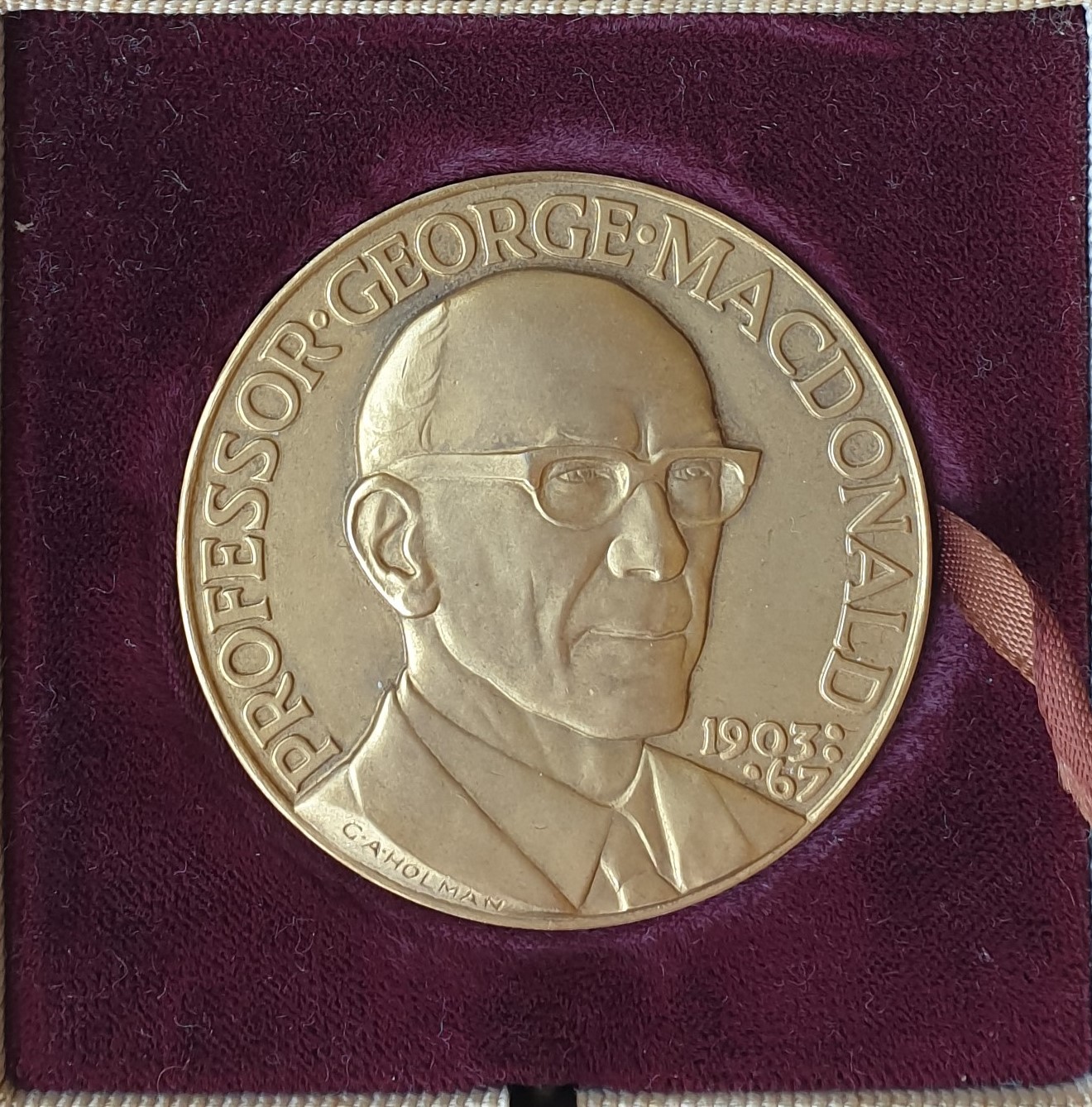George Macdonald (malariologist) on:
[Wikipedia]
[Google]
[Amazon]
George Macdonald (22 June 1903 – 10 December 1967) was a British physician who was Professor of Tropical Hygiene at the London School of Hygiene & Tropical Medicine. His research concentrated primarily on 

malaria
Malaria is a mosquito-borne infectious disease that affects humans and other animals. Malaria causes symptoms that typically include fever, tiredness, vomiting, and headaches. In severe cases, it can cause jaundice, seizures, coma, or death. S ...
, its epidemiology and control. He was the author of many papers on the mathematical analysis of transmission of tropical infections and the author of ''The Epidemiology and Control of Malaria'', published in 1957.
From observations in the field, Macdonald developed concepts covering the mathematical modelling of the transmission of vector-borne tropical diseases and then applied the results to the eradication of the disease. He was early in perceiving the value of computer analysis in this area.
Macdonald developed the concept of the R number. He derived R0, originally termed Z0, from a reproduction ratio established by the demographer Alfred J. Lotka
Alfred James Lotka (March 2, 1880 – December 5, 1949) was a US mathematician, physical chemist, and statistician, famous for his work in population dynamics and energetics. An American biophysicist, Lotka is best known for his propos ...
. Macdonald's aim was to understand quantitatively the transmission of malaria. In the 1950s, he suggested using the reproduction ratio to describe the transmission potential of malaria. He proposed that, if R0 is less than 1, the disease will die out in a population, because on average an infectious person will transmit to fewer than one other susceptible person. If R0 is greater than 1, then the disease will spread.
The George Macdonald Medal was first awarded in 1972 and every 3 years thereafter to recognise outstanding contributions to tropical hygiene. The medal is awarded jointly by the London School of Hygiene & Tropical Medicine
The London School of Hygiene and Tropical Medicine (LSHTM) is a public research university in Bloomsbury, central London, and a member institution of the University of London that specialises in public health and tropical medicine.
The inst ...
and the Royal Society of Tropical Medicine and Hygiene
The Royal Society of Tropical Medicine and Hygiene, more commonly known by its acronym RSTMH, was founded in 1907 by Sir James Cantlie and George Carmichael Low. Sir Patrick Manson, the Society's first President (1907–1909), was recognised as "th ...
. 

Early life and education
Macdonald was born in Sheffield. His father,John Smyth Macdonald
John Smyth Macdonald FRS (1867, Dublin – 29 March 1941) was a British physiologist.
Early life and education
Macdonald was born in Dublin, Ireland, in 1867 to George Macdonald, a tailor, and his wife, Margaret, née Smyth. The family soon move ...
FRS, was a physician and professor of physiology at the University of Sheffield, and then at the University of Liverpool. His mother was Mary Catherine, daughter of Donald Stewart, a Scottish farmer.
Macdonald was educated first at King Edward VII School in Sheffield, and, when the family moved to Liverpool, at the Liverpool Institute
The Liverpool Institute High School for Boys was an all-boys grammar school in the English port city of Liverpool.
The school had its origins in 1825 but occupied different premises while the money was found to build a dedicated building on ...
. He then entered the medical school of the University of Liverpool, graduated MB ChB in 1924 and, already attracted by a career in the tropics, took the DTM in the same year.
Career
In 1925 Macdonald was appointed research assistant at the Sir Alfred Jones Research Laboratory in Freetown, Sierra Leone, where during the next four years he carried out studies on the effects of malaria in African children. In 1932 he took the post of medical officer for the Mariani Medical Association in Assam. He held this appointment until 1937. During the second world war Macdonald had a distinguished service. He was, in turn, commanding officer of No. 1, No. 2 and No. 3 Malaria Field Laboratories in the Middle East and Central Mediterranean, with a final rank of Brigadier. Macdonald became director of the Ross Institute in 1945. He was appointed CMG in 1953, and elected a Fellow of the college in 1955. In 1954 he received the Darling Foundation Medal and prize from the World Health Assembly in Geneva for his studies on epidemiology and control of malaria.Ronald Ross
Sir Ronald Ross (13 May 1857 – 16 September 1932) was a British medical doctor who received the Nobel Prize for Physiology or Medicine in 1902 for his work on the transmission of malaria, becoming the first British Nobel laureate, and the f ...
and Macdonald are credited with developing a mathematical model of mosquito-borne pathogen transmission. A systematic historical review suggests that several mathematicians and scientists contributed to development of the Ross-Macdonald model over a period of 70 years. The Ross-Macdonald model has since played a central role in the development of research on mosquito-borne pathogen transmission and strategies for mosquito-borne disease prevention.
Personal life
In 1932, Macdonald married Mary Hetherington (1907 – 1987), daughter of civil engineerRoger Gaskell Hetherington
Sir Roger Gaskell Hetherington CB, OBE (10 February 1876 – 24 February 1952) was a British civil engineer and civil servant..
Life
Roger Gaskell Hetherington was born in Sherborne, Dorset on 10 February 1876, the eldest son of William Lons ...
. Together they had three children.
References
External links
* R0: How Scientists Quantify the Intensity of an Outbreak Like Coronavirus and Its Pandemic Potential https://sph.umich.edu/pursuit/2020posts/how-scientists-quantify-outbreaks.html * Wellcome collection of papers https://wellcomecollection.org/works/rk2vep9w * * * * * * * Epidemiologic Models in Studies of Vector-Borne Diseases http://ceadserv1.nku.edu/longa//haiti/malaria/pubhealthreporig00105-0023.pdf{{dead link, date=June 2022 * The National Archive Catalogue https://discovery.nationalarchives.gov.uk/details/r/e90fa733-ded3-40ed-a53d-38173305dc1f 1903 births 1967 deaths Malariologists London School of Hygiene & Tropical Medicine People educated at King Edward VII School, Sheffield People educated at Liverpool Institute High School for Boys